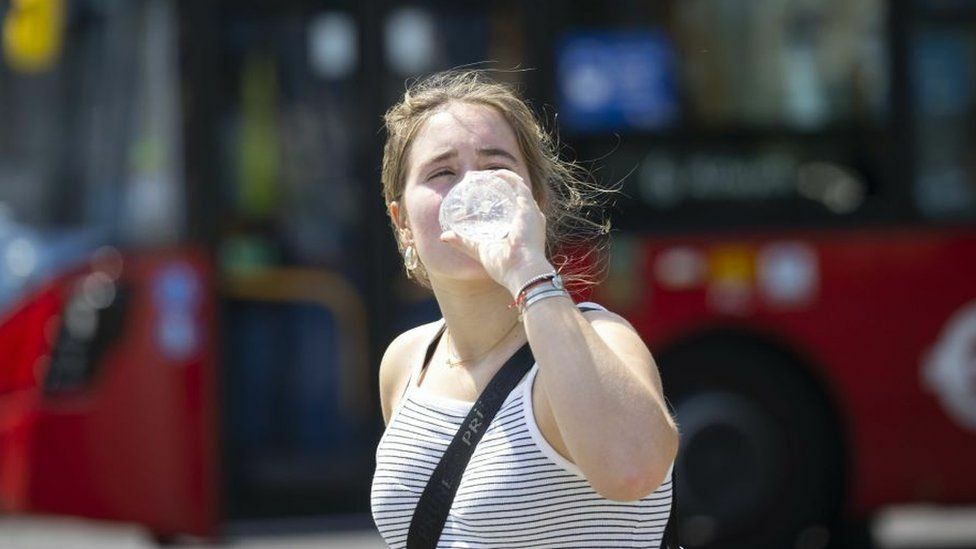Amber heat-health alert as UK braces for weekend temperatures up to 30C

An amber heat-health warning has been implemented as parts of the United Kingdom are predicted to reach 30C in the upcoming days. The amber alert, signifying that high temperatures may affect all age groups and impact the health service, covers eastern and southern England, as well as the Midlands. Forecasters anticipate that this weekend’s temperatures will be 5C to 10C higher than average for June.
The UK Health Security Agency (UKHSA) escalated the alert from yellow to amber on Thursday. Fire services have also issued warnings about potential wildfires and urged the public to exercise caution during the weekend. The Met Office reported that Thursday was the hottest day of the year thus far.
BBC forecasters predict that temperatures in parts of south-east and north-east England, along with the Midlands, will range from 28C to 30C on Saturday. BBC meteorologist Matt Taylor noted that humidity levels will also rise, resulting in warmer nights. He added that sporadic torrential thunderstorms are possible, and with “very dry ground,” localised flooding may occur where heavy downpours take place.
Taylor also mentioned that air quality is expected to deteriorate due to south-east winds coming from the continent. The amber alert will remain in effect until 9am BST on Monday. A less severe yellow alert, advising people to check on vulnerable friends and family members, has been issued for northern England and London.
A Met Office yellow warning for thunderstorms is also in place for all of Wales and large parts of southern England from 2pm BST until 9pm on Saturday. This may lead to travel disruptions, power outages, and localised flooding from the heaviest showers.
During the hot weather, the UKHSA recommends people to:
The UKHSA acknowledges that it is challenging to predict the precise impact of higher temperatures on the health service, but additional needs will arise from vulnerable groups who suffer in the heat. These include individuals over 65 years old, those with respiratory or cardiovascular conditions, and children.
Andy Cole, the assistant chief fire officer from Dorset and Wiltshire Fire Service, encouraged people to be “vigilant” this weekend and to avoid using disposable barbecues or starting campfires. He stated that there was a “record number” of wildfires last year. Dorset and Wiltshire experienced a “roughly 400% increase” compared to the previous year, with 911 recorded.
Speaking to BBC Radio 4’s Today programme, Cole explained that wildfires are “extremely dangerous” and can require significant resources from the fire service. Fire crews across the UK are being trained in new Mediterranean-style techniques from southern Europe and the US to combat wildfires.
Climate change is increasing the likelihood and intensity of heatwaves in the UK. Last year was the warmest on record in the UK, with Coningsby, Lincolnshire, reaching a record 40.3C on July 19. The UKHSA anticipates that heatwaves will “likely occur more often, be more intense, and last longer in the years and decades ahead.”
The new colour-coded alert system, launched last week, is operated by the UKHSA and the Met Office. It aims to reduce illness and deaths among the most vulnerable. One more alert level, not yet issued, represents the most severe risk. The red alert signifies that even healthy individuals face a significant risk to life, and a severe impact is likely across all sectors.
Individuals can sign up to receive alerts directly here, and they can specify which region they would like to receive alerts for.
Latest Thailand News
Follow The Thaiger on Google News:


























